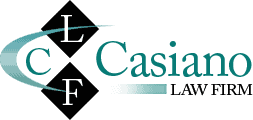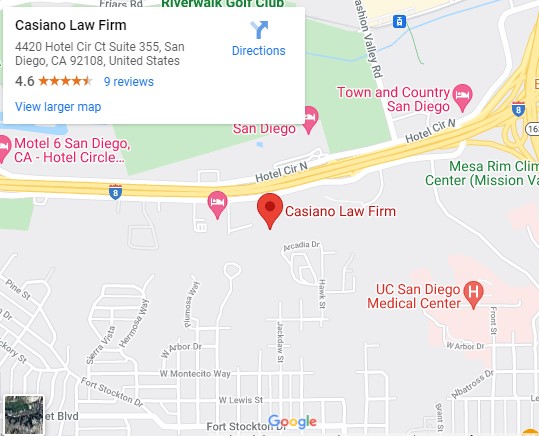Dangers of DIY Estate Planning
Even though you might want to save money by planning your San Diego estate on your own, you have to stop and study first the downside of doing estate planning by yourself. California estate planning is filled with small details that the average person is unaware of, but which a San Diego estate planning attorney will. That’s why it’s always a good idea to see an estate planning attorney for help with your estate planning needs to ensure nothing gets overlooked.
Those who want to substitute proper legal advice in complicated fields such as estate planning with a do-it-yourself online document should be aware of the downside of doing estate planning by yourself. Internet websites have sprung up to provide DIY estate planning forms. While these websites seem convenient, they accept no responsibility for their estate planning documents if they fail to work after your death.
Compare this with a San Diego estate planning attorney who will accept full legal responsibility for the documents they draft. If problems arise throughout the trust administration process, the estate planning attorney will be willing to help. If you’re ready to create the best estate plan for your family, don’t hesitate to call a San Diego estate planning attorney at Casiano Law Firm. He will provide you with all the information you need to make informed decisions for your future in a NO-CHARGE PHONE CONSULT.
Estate Plan: A Brief Overview
The first thing to understand about estate planning is that there isn’t a single document referred to as an “estate plan.” Instead, an estate plan is a blueprint of what you want to happen to your money and other assets when your life ends. It consists of a number of legal documents that provide the legal framework necessary for your wishes to be carried out.
In order to correctly execute many of these documents, significant background knowledge is required. They often differ depending on your state, so getting the details correctly is essential. If you don’t know what you are doing, there’s a high risk you will make a mistake and leave a mess for your family to clean up after you’re gone, and this makes it the biggest downside of doing estate planning by yourself.
What is Included in an Estate Plan, and How Do You Make One?
- Create a Will. You specify in a will who you would want to inherit your properties and a guardian to your minor children if both you and your spouse die.
- Consider Establishing a Trust. Your heirs will avoid the time-consuming and costly probate court process if you put your assets in a living trust.
- Make Health Care Directives. If you are incapable of making medical decisions by yourself, writing down your desires for future health care will give you protection. A living will, or health care declaration, and a health care power of attorney give someone you have chosen the authority to make decisions on your behalf if you are unable to. (In certain jurisdictions, the documents are bundled into a single document known as an advance health care directive.)
- Create a Power of Attorney for Finances. You may give a trustworthy person authorization to manage your property and finances if you are incapacitated with a durable power of attorney for finances. Your attorney-in-fact (who does not need to be an attorney) or agent is the person you choose to manage your money.
- Protect Your Children’s Property. An adult should be chosen to handle any money or property left to your underage children. This person may be the personal guardian named in the will.
- File Beneficiary Forms. When you have a beneficiary designation in your bank account or retirement plan, the account becomes “payable on death” to your beneficiary and the money avoids probate. Similarly, virtually all states allow you to register your bonds, stocks, or brokerage accounts to be transferred to your chosen beneficiary after your death.
- Keep Life Insurance as an Option. If you have small children, own a home, or have big debts or an estate tax to pay after you die, getting life insurance may be a sensible decision.
- Study Estate Taxes. Most estates will not owe estate taxes to the federal government. The federal government will levy estate tax for deaths in 2022 only if your taxable estate exceeds $12.06 million. (This amount is adjusted for inflation each year.) Furthermore, married couples may transfer up to double the exempt amount tax-free, and any assets left to a spouse (the spouse has to be a United States citizen) or tax-exempt charity are tax-free.
- Pay for Funeral Expenses. Instead of relying on a funeral prepaid plan, you may open a payable-on-death account at your bank and put funds into it to pay for your funeral and related expenditures.
- Make Final Arrangements. Make your end-of-life preferences known concerning body and organ donation and disposition of your bodily remains—burial or cremation.
- Safeguard Your Business. If you’re the single owner of a company, you should establish a succession plan. If you own a company with others, you must have a buyout agreement in place.
- Keep your documents safe. Your attorney-in-fact and/or executor (the person named in your will to manage your estate after you die) may require access to the following documents:
- will and trusts
- real estate deeds
- insurance policies
- stock certificates, annuities, bonds,
- bank account information, mutual funds, safe deposit boxes
- information regarding debts: credit cards, loans, mortgages, unpaid taxes, and utilities
- information concerning retirement plans, IRAs, or 401(k) accounts,
- information concerning funeral prepayment plans, and final instructions you have made.
Keeping your documents organized will greatly benefit your survivors.
The Five Downsides of Doing Estate Planning By Yourself
A Will is Not the Same as an Estate Plan
Most people believe that they only need a Will and once that is accomplished, they already have an estate plan. However, Wills is just one aspect of a strong estate plan, so even if you create a legal DIY will that fulfills state requirements, it is unlikely to be adequate to handle your estate planning needs.
While a legitimate will assures that your inheritance is transferred according to your intentions, the probate court will oversee the distribution. Wills must be witnessed in order to be legally binding. An estate planning attorney will secure all of the requirements are correctly done so that your will is considered valid under the law of the state.
Your Estate Plan Might Not Meet the Legal Requirements of Your State
Each state determines estate planning legislation, and the relevant requirements can differ significantly. Sadly, a DIY estate plan downloaded online may affirm to comply, but you’ll be surprised it’s not. If you own a business, property, or any assets in another state, the situation becomes much more complicated. Because of the increased difficulty (as you tackle numerous rules and legislation), your DIY estate plan will not provide enough coverage.
In contrast, a trusted estate planning law firm assumes full responsibility for the papers they prepare and will readily help if any complications arise. They will review notes made during their discussions with you and are willing to testify to your intentions if necessary.
No Checks and Balances in Place
A DIY estate plan is often prepared based on a questionnaire that you fill out online. There’s a considerable risk you’ll make an error, choose the incorrect option, or forget to mention anything vital.
An experienced estate planning attorney will ensure that all of your ducks are in a row. They will help you in reviewing all of your properties, investments, and other assets to verify that everything is listed and that every detail is accurate.
Your Legacy Is Not a One-Size-Fits-All Issue
If you are creating your estate plan on your own, this means that you are not receiving guidance on how to improve your strategy. In many circumstances, a Trust will be a superior estate planning tool over a Will, yet it may be something you overlook because you are unaware, or it thinks it may be unneeded (or even too confusing).
A trust, which enables you to transfer your money and property after you die, is often recommended by an estate planning law firm to avoid the process of probate, thereby saving your beneficiaries a lot of time and unneeded expenses.
DIY Trusts are an alternative, but you must follow the right process and fund it (transfer the title of your property and money into the Trust’s name). If you do not take this critical step, the Trust will be rendered useless, and your heirs will be forced to go through the probate process. Even if you have a will, estates worth more than $166,250 in California must go through probate. The only way to avoid probate is to set up and fund a revocable living trust. An attorney can ensure that your revocable living trust is customized to your specific needs and desires.
Changes in Your Situation
Life happens, circumstances change, and new situations may arise that you could not have anticipated while creating your estate plan. When this happens, you might forget to update your plan or decide to make do-it-yourself changes yourself:
- Your Plan Has Not Been Updated. What if you made a will that said everything should be given to your two children, but you had a third child (and neglected to update your Will)? Is there no inheritance for the third child? Do you have a strategy in place to protect your assets? In rare situations, the family house may be left to a beneficiary. Is it your desire to have that beneficiary get nothing if the property is sold before your death and the Will is not updated? Furthermore, depending on what you put in your DIY estate plan, you may not have moved new assets that you have purchased into your Trust. What happens next? Property titles and other assets must go through probate if they have not been transferred to the Trust.
- DIY Modifications. The temptation to write your own estate plan changes and have them notarized is real. Unfortunately, a Notary Stamp does not make the document legally binding in and of itself; it just indicates that you validated your identity to the Notary Public and they witnessed you sign the paper. If there is an accidental ambiguity in your wording, your estate may need to go through the probate process.
In contrast, if you hire an estate planning attorney, they will set up periodic reminders to ensure that your estate plan is up to date and fulfills your objectives.
Consult an Experienced San Diego Estate Planning Attorney
It’s a lot of pressure to ensure your family member’s financial security. Putting up a solid estate plan requires careful consideration of many different factors. An estate planning attorney in San Diego can advise you on the best estate plan for you and your family and also explain to you the downside of doing estate planning by yourself. If you choose Vincent Casiano as your estate planning attorney, he will see to it that your desires are carried out without any unnecessary stress or cost to you. Call his law office now and make an appointment if you’re ready to create the right estate plan for your loved one!

